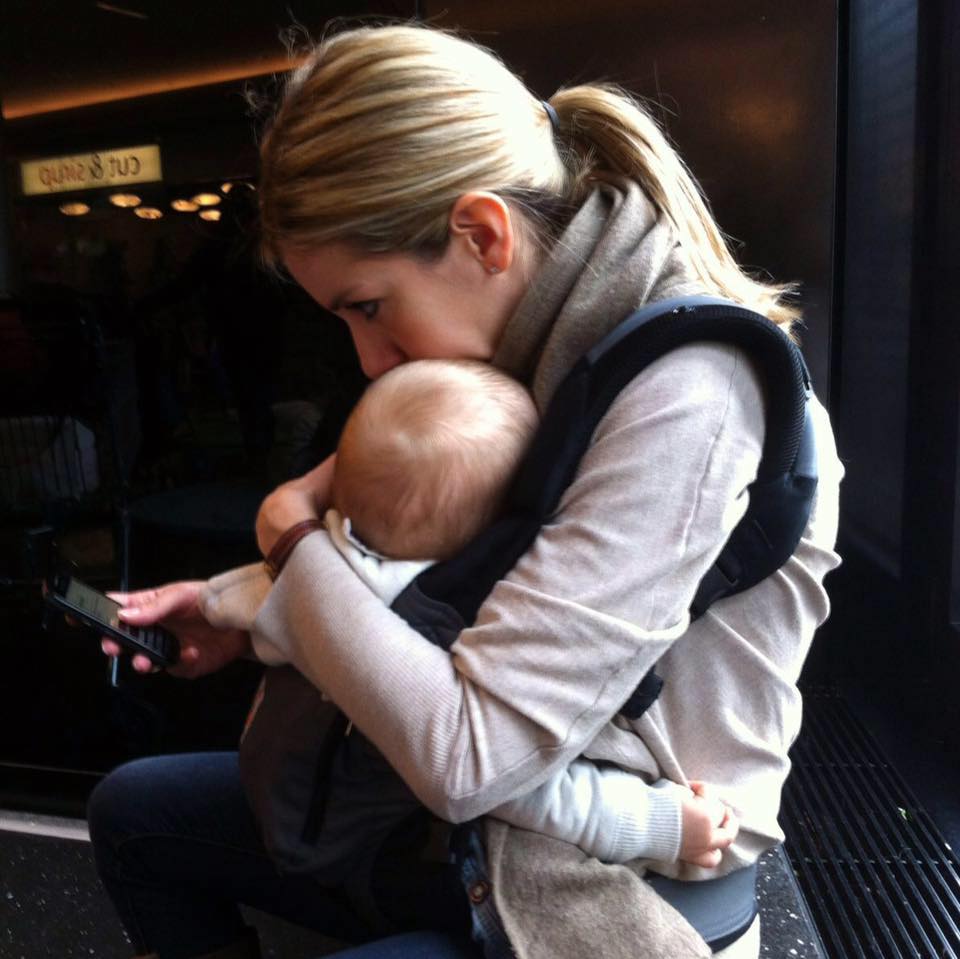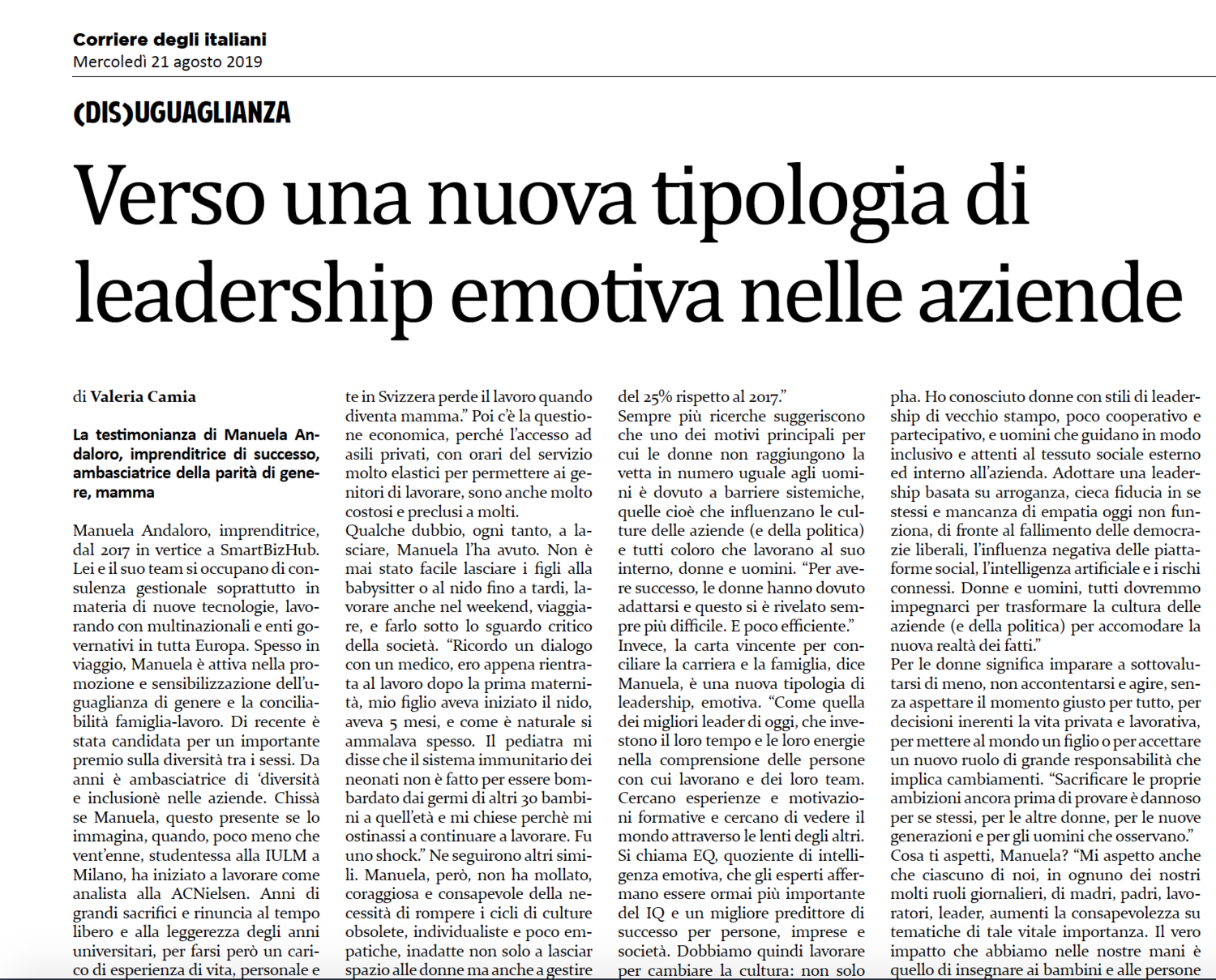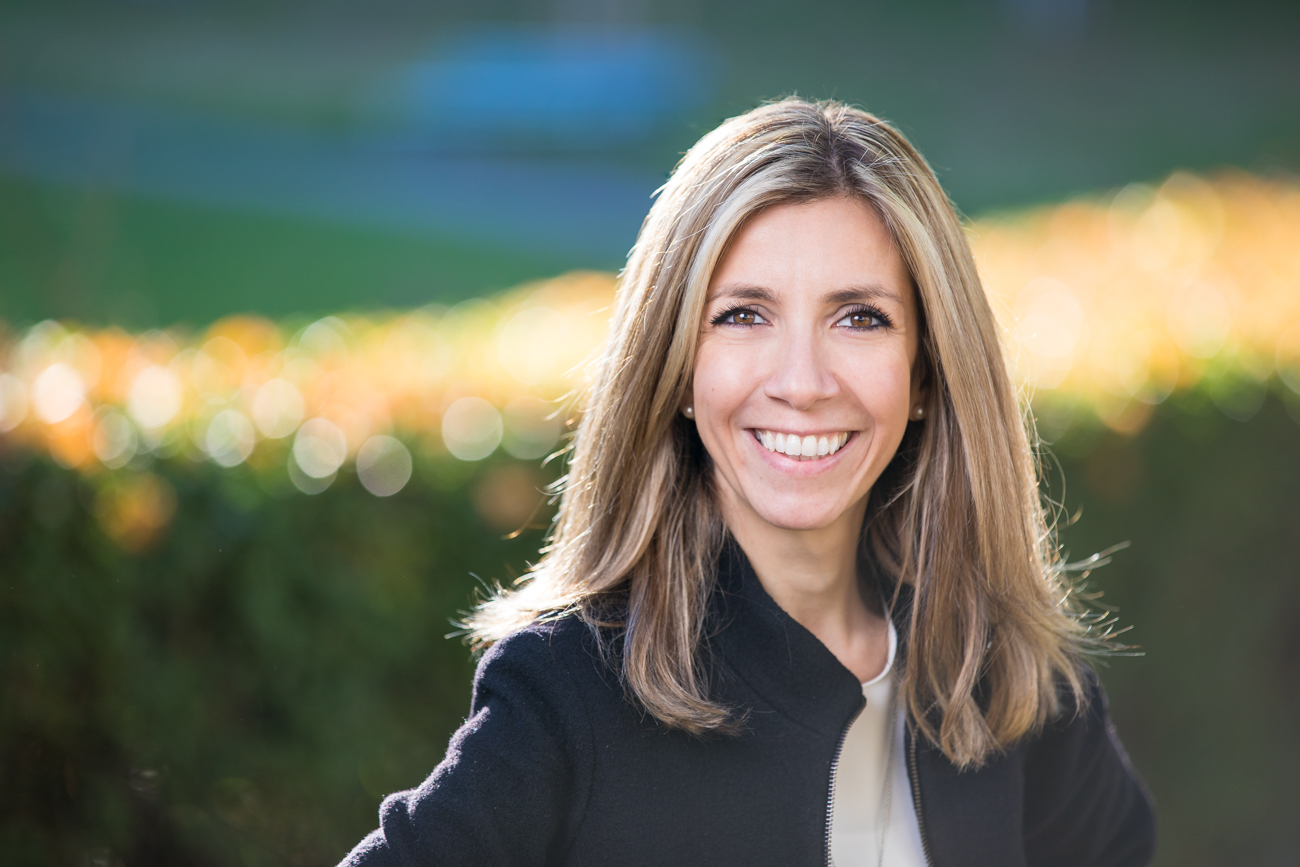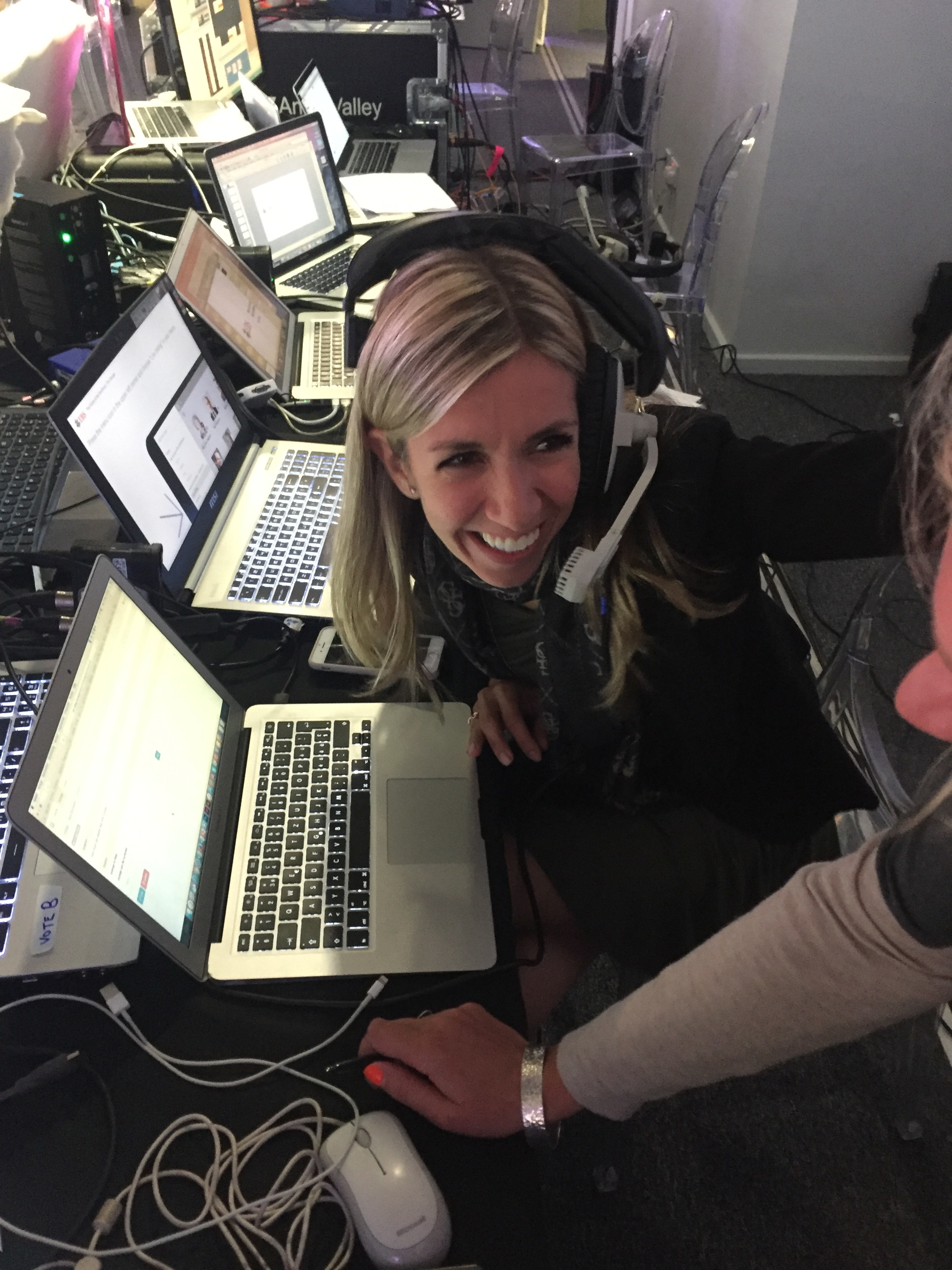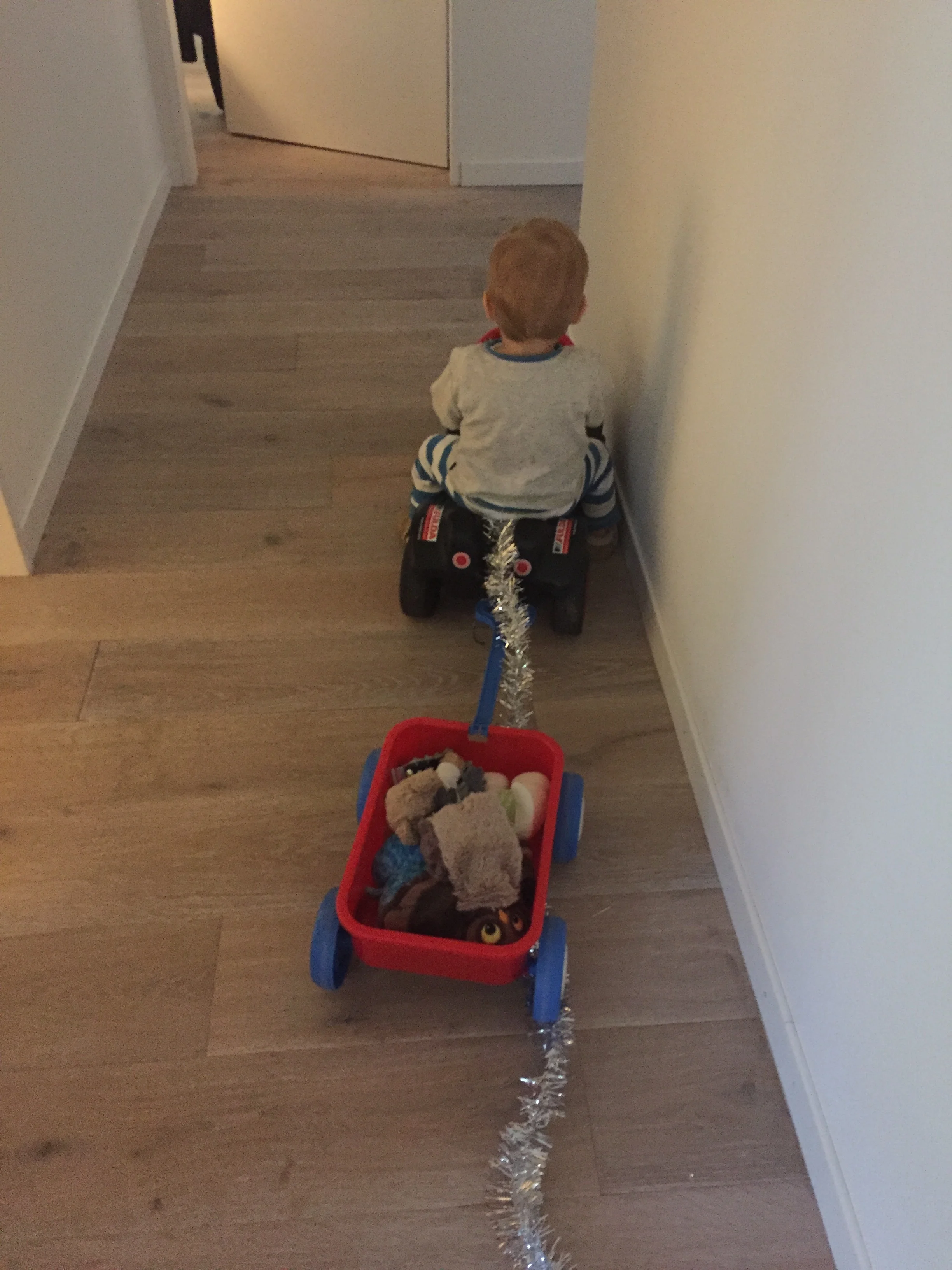Article by Manuela Andaloro for Corriere dell’italianita’.
At the end of January 2020, I took a few months off to welcome the arrival of our third child. I was going to leave behind a familiar and comfortable reality, with a stable balance and foreseeable dynamics. After four months, I prepare to pick up where I left off and to gradually reopen myself to the world, but the world I left, is not the world I am about to return to, nor the world I lived in with my family and that I have seen change in these few months.
What should we expect from the “new normal” that awaits us and from life after lockdowns?
A recent cover story from The Economist talks about a “90% economy”, in which significant bits of the pre-COVID everyday life simply won’t exist any more. At least, until a vaccine and/or treatment will be found or the virus will have disappeared on its own.
After the lockdowns, the factories have reopened and the streets are no longer empty, but the result is a 90% economy, where the use of public transport has decreased by a third, and domestic flights are nearly all grounded. Consumer spending has decreased by 40% and the same goes for eating out. Hotel stays are one-third of what they used to be. People are overwhelmed by financial difficulties, uncertainty, the fear of social uprisings or a second wave of COVID-19. More companies are filing for bankruptcy, unemployment is soaring, GDP is free falling. On the other hand, deaths caused by air pollution – 1.5 million each year, according to WHO – dropped to almost zero and the benefits for the environment are countless. This affects all the countries that have opted for more stringent lockdowns but also reflects onto those that have not implemented any type of closing measures.
The economic, social and political after-effects of COVID-19 are leaving deep scars in the society and spread out with a myriad of ramifications, creating a domino effect.
In this context, the need for stability on the one hand and for a sustainable change on the other is strongly felt by the vast majority of the population. Something is moving: change is in the air and expectations among the people are growing.
The task of all those who believe in free markets and western democracies is to ensure that these expectations are channelled towards the right kind of change.
Eventually, this pandemic might even increase the sense of solidarity both at a national level and globally. Perhaps, this time – unlike the crisis of 2007-2009 – the desire for a change will not lead to a surge in populism.
In this challenging scenario, I see more and more great opportunities opening up. Politics is one of them, a subject for which I have a strong passion, like so many other women.
Abigail Spanberger, Virginia 7th Congressional District seat winner, addresses the crowd as daughter Catherine, 4, playfully crawls between her mother's legs during the election night party, Nov. 6, 2018. Looking on are Spanberger's husband, Adam, right, and daughters Claire, 10, and Charlotte, 7. Spanberger defeated two-term Republican Rep. Dave Brat. (Bob Brown, AP)
World leaders attend a family photo session at the G20 in Osaka. Kim Kyung-Hoon/Pool/Getty Images
But, like so many other women, I often find the rugged roads of politics hard to walk and the tools needed to be out of reach. If in the corporate world we speak of a “glass ceiling”, in the political circles we could define it as a concrete ceiling: it’s out there for everyone to see.
Formal equality of the sexes does exist but the facts on the ground are different: over the last two millennia, politics has been ruled by men according to a gender conception that has prevented equal rights so far. As a matter of fact, in Italy, women are 51% of the population but only 30% are involved in politics. Simply put, a big portion of the population is not being represented and has little relevance in public policies, even those that concern women directly.
Everywhere in the world women are under-represented: only 24.3% of all national parliamentarians were women as of April 2019 (UN statistics); out of the 193 Member States of the United Nations, only 15 have a female leader (Pew Research).
In Switzerland, my current country, female voters outnumber their male counterparts by 10% (Swissinfo). Yet, women remain a minority in cantonal and federal politics.
Women in politics are confronted with a male majority in virtually all respects, even if there are big differences between the political parties. For example, the share of men in Switzerland’s strongest party, the conservative right Swiss People’s Party, is twice as high as the share of female members. The same applies to the centre-right Conservative Democratic Party.
Both the centrist Christian Democrats and the Social Democratic Party state that their share of female members is around 40%, while the centre-right Radical-Liberal Party does not reveal its figures. Apart from the Greens, no other party approaches parity.
A closer look at the number of female delegates reveals a similar picture.
Alice Glauser, People’s Party’s parliamentarian for canton Vaud, thinks this is problematic: “The structures were created by men for men”.
Also in Italy, the figures are well known and merciless. No female Prime Minister, or President of the Republic, ever. Until the first Conte cabinet, throughout the seventy years of the Italian Republic, over fifteen hundred male ministers were elected, against only eighty-three female ministers, half of which were without portfolio. Today, three out of five female ministers are without portfolio. Only 13 mayors out of a hundred are women.
In this social context affected by COVID and with such a fragmented political framework, I rejoiced when I saw – at least, in Italy – strong and successful initiatives taking place with the aim of shaping the future political order. They advocate for equal opportunities bearing a constructive and democratic vision.
The first one is called “Prime Donne” (Women first), a school of Political Studies supported by Più Europa Association and presented to the Chamber of Deputies. It is a training course for 25 women selected among over two hundred candidates. It’s just a drop in the ocean, but it’s a start.
Fabiana Musicco, the spokeswoman of the school, explains further: “We work on contextual data that are often not known to the public. We aim at exposing the under-representation of women and showing how their increased presence, for instance in municipal executive councils, has contributed to changing the policies. We are talking about the structure of political parties, access to the leadership, how electoral rolls are created. We also offer training modules on the so-called ‘soft skills’, that is, communication abilities. Political verbal communication – even that of talk shows – is ruled by a masculine, aggressive speech style; we want to disrupt these patterns. We also want to bring up new proposals for a better work-life balance”.
The second initiative, Prime Minister, is a school of Political Studies for young women (aged 13 to 19) which intends to “inspire a new generation of women by introducing them to politics – understood as the art of interpreting and guiding society –, discussing democracy, activism, social justice and female leadership.”
“We are trying to build a new piece of the world, a dimension where we can find happiness in the community, where we can discover new ways of thinking and living”, says Florinda Saieva, 42, from Sicily. “We want to inspire the youngsters, to discuss with them about democracy, institutions, justice, sustainable development; we want to reflect on the power of active citizenship as well as on the absurdity of gender stereotypes that continue to relegate women to secondary roles and on the need, instead, for new female leaders. This can be seen as a gender equality challenge and a generational challenge – this is why young girls are our priority. What’s more, this is also a challenge to promote the South of Italy, where boys and girls go through huge difficulties. We mean to stimulate the talent and sensitivity of these young girls, hoping that these very girls may be the Prime Ministers of tomorrow. We all desperately need a change and I believe that after the horrible moment we are going through, we will be ready to make it happen”.
In this difficult moment we are experiencing, it is essential to grasp and guide this change, now more than ever. We need to start building new structures and synergies made for an economic, political and social future that includes and leverages that 51% of the population, breaking up with the past and, finally, disrupting these obsolete and harmful mechanisms.
Manuela Andaloro
(info@smartbizhub.com)










